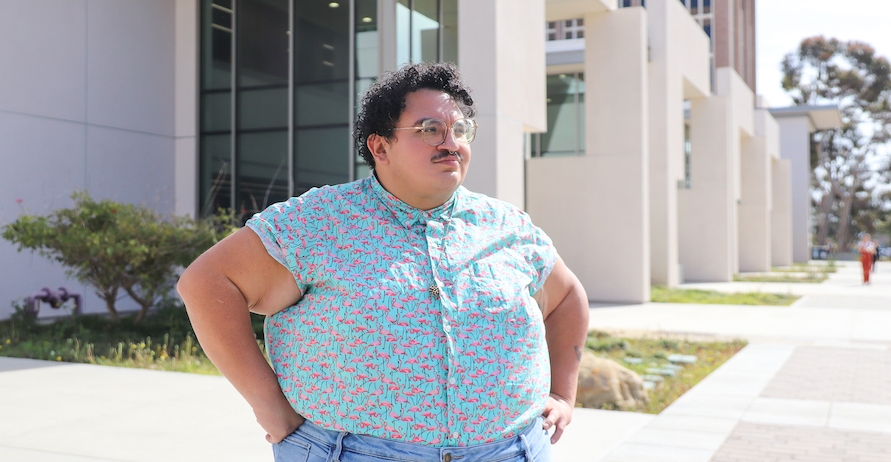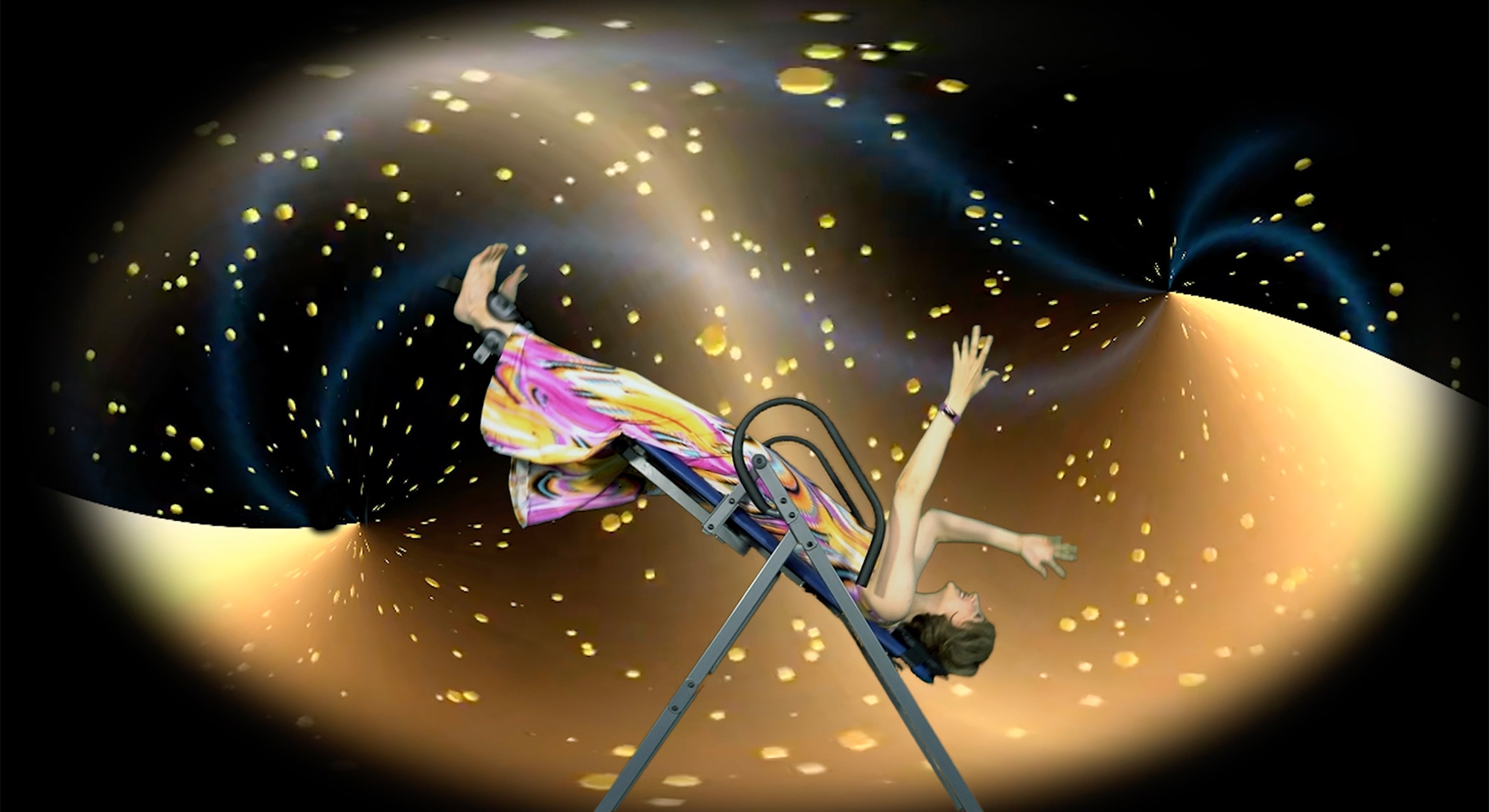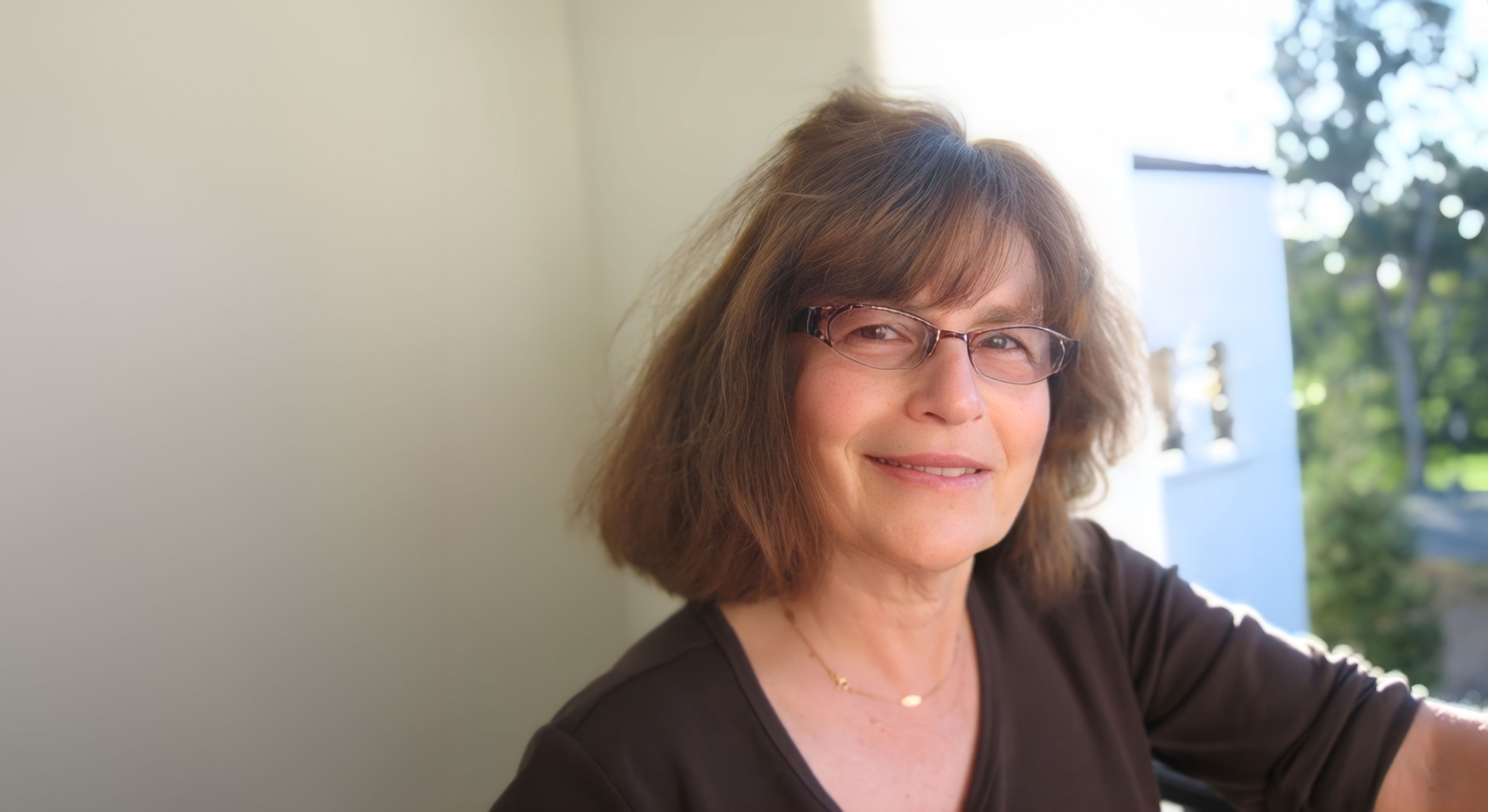
When Lizzo took the stage earlier this month to accept the Grammy for record of the year, not only was she the first Black woman to win the award since Whitney Houston in 1994, but she also was one of the only fat women to win the award in its history.
Lizzo’s “About Damn Time” taking top honors signals notions of body positivity are being celebrated in the mainstream, but does it mean that fatphobia is fading?
“Body positivity is a diluted version of the fat liberation movement — larger systems of oppression are reduced to issues of body image and self-esteem,” said Caleb Luna, University of California President's and Andrew W. Mellon Foundation Postdoctoral Fellow in feminist studies at UC Santa Barbara. “That’s not going to get us anywhere and it doesn’t necessarily help fat activism or eliminate fatphobia.”
Luna’s new book, “REVENGE BODY,” a collection of poems about “fat brown disabled queer survivor body landscapes” was recently released by Nomadic Press. Their creative nonfiction, including the podcast “Unsolicited: Fatties Talk Back” and performance art are part of their larger research in fat studies, in which Lizzo, a fat Black artist who uniquely embodies body positivity and fat activism — while still facing fatphobia and the commercialization of her body by others — is a case study.
In their essay, “If I’m shinin’, everybody gonna shine’: centering Black fat women and femmes within body and fat positivity,” co-authored by Mary Senyonga of California State University, Sacramento and published in the journal of Fat Studies, Luna argues that fat activism challenges the ways fat people are systemically marginalized, whereas body positivity focuses on an individual relationship to one’s own body.
The authors further argue that nonfat folks “gentrifying” body positivity has led to the erasure of the movement’s original authors, largely queer Black and brown women coming out of the feminist and gay rights movements. Moreover, they posit that the commercialization of body positivity for “all bodies” whitewashes the persistent stigma toward actual fat people and the damage it causes.
“I’m facing a lot of housing discrimination in Santa Barbara right now,” Luna said. “I’m a confident, professional fat person and that’s not doing anything to materially change my situation.”
Luna points to the “Fat Liberation Manifesto,” penned in 1973 by Judy Freespirit and Aldebaran, a text springing from the Fat Underground, an early fat activist group of the 1960s and ‘70s. In their 10-point document, the authors state that fat people are fully entitled to human dignity; they repudiate the weight loss industry which profits from turning fat bodies into objects of ridicule; and aligns fat activism with the struggles of other oppressed groups against classism, racism, sexism, ageism, financial exploitation, imperialism and the like.
“This knowledge has been around for my entire life,” added Luna, “and I still grew up in a very fatphobic and homophobic environment.”
In their poetry, Luna’s performative-self parses the anxieties of fatness into verse. They speak of being the object of desire by oblivious men who fetishize and study their size, “& they never ask: / ‘What’s it like for you when you leave this room?’ / [...] / ‘What pain are you carrying?’; and, / ‘How do you find the strength to go on?’” they write in the poem “The Men Who Loved My Body (And the Things They Said)” from “REVENGE BODY.”
Though most salient in their poetry, Luna includes their personal voice and experience in nearly all their work, including more traditional academic texts.
“I think it comes from the performance studies training with an emphasis on the body,” they said. “I was trained by Black, feminist, queer anthropologists. And not typical anthropologists that seek to be objective — I was trained that nothing in anthropology is objective. I also want to be clear that my analysis is coming from a specific and unique embodied experience.”
Debra Herrick
debraherrick@ucsb.edu



